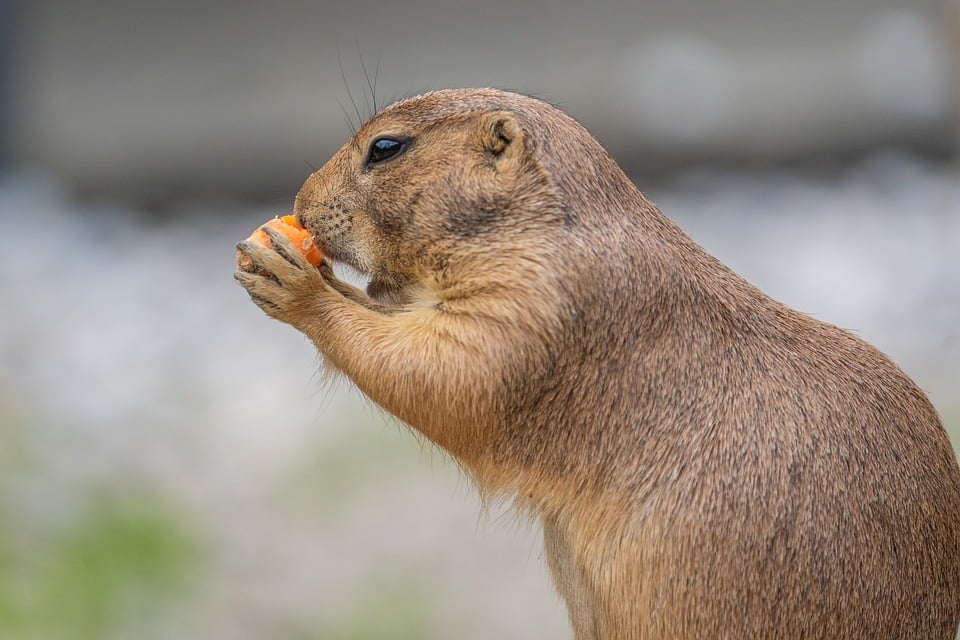Introduction:
As responsible pet owners, providing a balanced diet for our dogs is crucial for their overall health and well-being. While we may be tempted to share our meals with our furry friends, it’s important to understand that some human foods can be harmful to dogs. This article will guide you through the essentials of providing a balanced diet for your dog and highlight the common human foods to avoid. Let’s delve into the details!
I. Understanding the Importance of a Balanced Diet for Dogs
1.1 The Role of Nutrition in a Dog’s Health
Proper nutrition plays a vital role in maintaining a dog’s overall health and longevity. A balanced diet ensures your dog receives essential nutrients, vitamins, and minerals necessary for healthy growth, strong immunity, and optimal organ function.
1.2 Essential Nutrients for Dogs
Dogs require a combination of protein, carbohydrates, fats, vitamins, and minerals in their diet. Proteins are crucial for muscle development and repair, while carbohydrates provide energy. Healthy fats support brain function and promote a shiny coat. Additionally, dogs need vitamins and minerals for various bodily functions, including bone health and immune support.
1.3 Benefits of a Balanced Diet for Dogs
Feeding your dog a balanced diet has numerous benefits, such as:
– Healthy weight management
– Improved digestion
– Enhanced energy levels
– Stronger immune system
– Shinier coat and healthier skin
– Decreased risk of chronic diseases
II. Building a Balanced Diet for Your Dog
2.1 Quality Commercial dog food
Commercial dog food is formulated to meet a dog’s nutritional needs. Look for brands that use high-quality ingredients, such as real meat as the primary protein source. Ensure the food is appropriate for your dog’s age, size, and specific dietary requirements. Consult your veterinarian to choose the best commercial dog food for your furry friend.
2.2 Home-Cooked Diets for Dogs
Preparing homemade meals for your dog can be an excellent option, as it allows you to have full control over the ingredients. However, it’s essential to consult a veterinary nutritionist or your vet to ensure the meals provide the necessary nutrients and are properly balanced.
2.3 Raw Food Diets for Dogs
Raw food diets, also known as BARF (Biologically Appropriate Raw Food) diets, consist of feeding dogs raw meat, bones, fruits, and vegetables. While some pet owners believe in the benefits of raw diets, it’s important to note that they require meticulous planning and can pose risks, such as bacterial contamination. Consult with your veterinarian before considering a raw food diet for your dog.
III. Identifying Harmful Human Foods for Dogs
3.1 Toxic Foods for Dogs
Certain human foods are toxic to dogs and should be strictly avoided. These include chocolate, grapes and raisins, onions and garlic, avocados, alcohol, caffeine, and artificial sweeteners like xylitol. Ingestion of these foods can lead to serious health issues, ranging from gastrointestinal upset to organ failure.
3.2 Foods to Avoid in Moderation
While not necessarily toxic, some human foods can cause digestive issues or other problems if consumed in large quantities. These foods include dairy products, fatty foods, spicy foods, and foods high in salt or sugar. It’s best to limit your dog’s intake of these items.
3.3 Foods to Be Cautious About
Some human foods may be safe for dogs in moderation but can still cause issues in certain individuals. These include fruits with pits or seeds, such as apples, peaches, and cherries, as well as nuts, including almonds and macadamia nuts. Always remove pits, seeds, and shells, and introduce these foods gradually to monitor your dog’s reaction.
IV. Frequently Asked Questions (FAQs)
4.1 Can I give my dog table scraps?
While some table scraps may be safe, it’s generally best to avoid feeding your dog from the table. Human food often contains excessive salt, spices, and unhealthy fats that can upset your dog’s stomach or lead to obesity. Stick to giving your dog their own balanced meals.
4.2 What should I do if my dog accidentally consumes a harmful food?
If your dog ingests a toxic food or shows any signs of illness after consuming human food, contact your veterinarian immediately. They will provide guidance on whether or not emergency treatment is necessary.
4.3 Are all fruits and vegetables safe for dogs?
Not all fruits and vegetables are safe for dogs. Some, like grapes, raisins, and onions, can be toxic. Always research and consult your veterinarian before introducing new fruits or vegetables into your dog’s diet.
4.4 How can I ensure my dog’s diet is nutritionally balanced?
To ensure a nutritionally balanced diet, consult with your veterinarian or a veterinary nutritionist. They can help you determine the appropriate proportions of protein, carbohydrates, and fats for your dog, as well as recommend specific brands or homemade recipes.
4.5 Can I feed my dog a vegetarian or vegan diet?
While dogs are omnivores and can technically survive on a vegetarian or vegan diet, it requires careful planning and monitoring to ensure they receive all the necessary nutrients. Consult with a veterinary nutritionist to design a balanced vegetarian or vegan diet if you choose to go this route.
Conclusion:
Providing a balanced diet for your dog is essential for their overall health and happiness. Stick to high-quality commercial dog food or consult with professionals to create homemade meals that meet your dog’s specific needs. Always be aware of the harmful human foods to avoid, and never hesitate to seek veterinary advice if your dog consumes something questionable. By prioritizing your dog’s nutrition, you’ll contribute to their long and healthy life.









